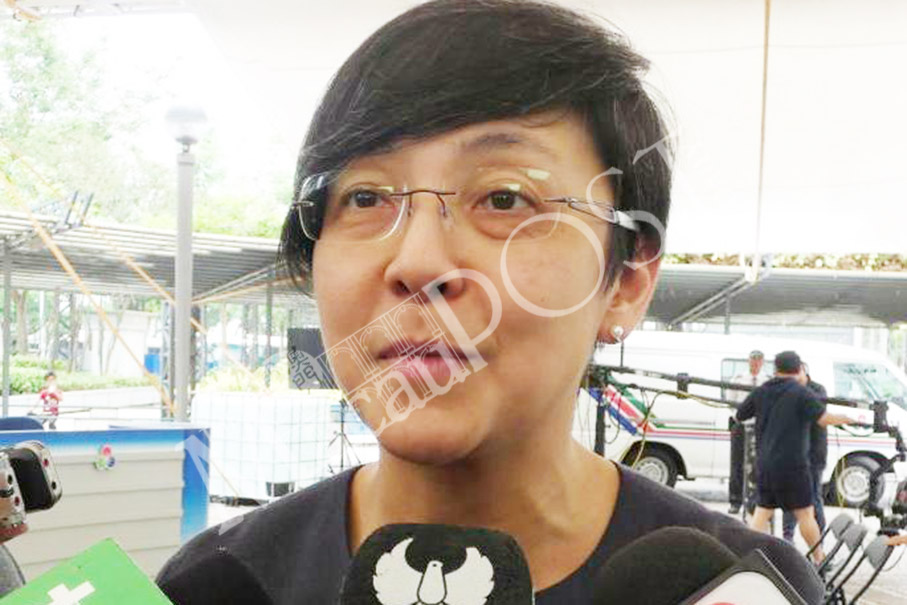Lawmaker-cum-restaurateur Andrew Chan Chak Mo, who chairs the Legislative Assembly’s 2nd Standing Committee, said yesterday that he expects the final article-by-article debate and vote on the government’s gaming industry amendment bill to be completed before the expiration of Macau’s three gaming concessions and three sub-concessions on June 26.
Chan also said that the government aims to complete drafting its tendering documents at around the same time for the upcoming bidding process for new gaming concessions.
Chan briefed reporters during a press conference after the committee’s closed-door meeting. Yesterday’s committee meeting was the first after the outline of the bill was passed during a plenary session last month. No government officials attended yesterday’s meeting, which lasted two hours, but seven fellow legislators who are not members of the 2nd Standing Committee sat in on the meeting.
The committee has 10 members including its president and secretary. The legislature has 33 members.
Currently, Macau’s gaming industry comprises three concessions (SJM, Galaxy and Wynn) and three sub-concessions (Sands, Melco and MGM). The three concessionaires sold one sub-concession each.
The bill proposed that there will be up to six concessions but no more sub-concessions. The current law states that the government can grant up to three concessions but stays mum on the existence of sub-concessions.
The government has hinted that the current three concessions and three sub-concessions will “quite probably” have to be extended for a while.
According to Chan, the committee members’ concerns yesterday focused on the operation of the so-called “satellite casinos” in the future.
The bill proposes that all casinos must be situated in real estate owned by the concessionaires. The bill proposes that gaming operators’ so-called “satellite casinos” housed in buildings that they don’t own will be given a transition period of three years to regularise their situation, provided that their operators are among the winners of the upcoming bidding process.
The government has said that the proposed amendments merely aim to ensure that the properties of casino operators will be returned to the government once the respective concession period expires, as casinos per se are government assets, i.e., they are to revert to the government after the respective concession expires.
Currently, some of the city’s casinos – while owned by one of the gaming concessionaires or sub-concessionaires, are housed on the premises that they don’t own, and are run by third parties, such as junket operators. They are informally known as “satellite casinos”. The current gaming law keeps mum on the existence of “satellite casinos”.
Chan pointed out that the current gaming operators’ concession agreements already lay out similar requirements – casinos must be situated in real estate owned by the concessionaires. However, the requirements were never enforced.
Chan said that there are currently about 20 satellite casinos in Macau, most of which are not housed on premises of gaming concessionaires or sub-concessionaires. Chan said that therefore the bill proposes a three-year transition period for future gaming concessionaires to regularise the issue, such as the future concessionaires to buy the respective premises.
According to the latest available data from the Macau Gaming Inspection and Coordination Bureau (DICJ), Macau’s six gaming operators own a total of 42 casinos.
The bill proposes that Macau’s future gaming concessionaires must have a paid-up share capital of at least five billion patacas, compared to the just 200 million patacas currently required. The bill proposes that each concessionaire’s managing director must hold at least 15 percent of the company’s paid-up share capital and have permanent residency status in Macau. Currently, the managing director must be a permanent resident as well but only needs to hold 10 percent of the paid-up share capital.
Chan said he understands that it is the government’s intention to increase the proportion of local residents’ ownership in casino businesses and their participation in the development of the gaming industry. However, Chan said, the new proposed requirement means that the minimum capital contribution from local residents will increase from the current 20 million patacas to 750 million patacas, because of which, Chan said, his committee worried that it might exceed the financial capabilities of local businesspeople and questioned if this requirement will meet government’s legislative intent.
Chan also said that his committee will hold another seven meetings this and next week, after which the committee will come up with a list of questions raised by the committee members, before holding its first meeting with government officials early next month to discuss the questions.
Lawmaker-cum-restaurateur Andrew Chan Chak Mo (right), who chairs the legislature’s 2nd Standing Committee, talks to reporters after the committee’s closed-door meeting yesterday reviewing the government’s gaming amendment bill, as the committee’s secretary, Lam Lon Wai, looks on. Photo: Ginnie Liang








